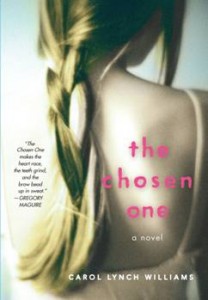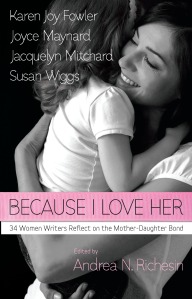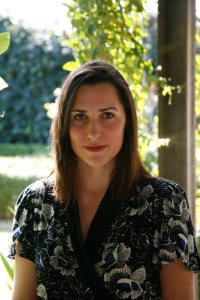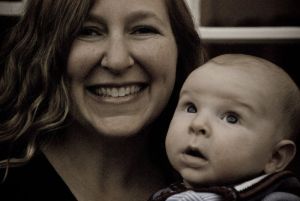I feel fortunate to have been introduced to Violet Raines Almost Got Struck by Lightning by Danette Haworth. This delightful book is great for mother-daughter book clubs, and it makes a good summer book for readers on their own.
Danette is graciously stopping by Mother Daughter Book Club as part of her blog tour with WOW! (Women on Writing) to answer a few questions. My review of Violet Raines follows the interview. I can’t wait to read more from this exciting debut author.
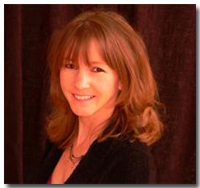
I believe this is your first book of fiction, what kind of writing have you done before?
DH: The first time I ever got paid for writing was during my tenure as a technical writer. Technical writing is any sort of writing that involves instructions or documentation. That might sound a bit dry, but I worked for an agency that employed scientists and military engineers, and I found their work very creative!
How did you come to write this story?
DH: I originally sat down to write an adult book, but Violet pushed her way in and took things over! Then I wrote the story in alternating chapters, with Lottie having a view on what was going on. After completing the rough draft, I put the manuscript down for a couple of weeks and when I picked it back up, I knew the whole story belonged to Violet. I stripped Lottie’s chapters out and rewrote everything from Violet’s perspective.
I love both Violet and Lottie, and I’m glad I wrote those chapters for Lottie. She has a quiet wisdom that comes from being the oldest of four girls and acting as her mom’s stand-in when her mother is working at the farmer’s co-op. She’s the perfect best friend for Violet, who has no brothers and sisters and spends a lot of time stirring up her own activities because her mom’s at work. Violet loves to fold herself into Lottie’s family—even helping out with chores—and they love her too.
Violet is worried about losing her best friend to a new girl in town and conflicted by her feelings for Eddie, who may be growing into something more than her long-time buddy. How do you see Violet changing throughout the book?
DH: I see Violet changing in that her perspective of friendship broadens a little (just a little!) by the end of the book. She realizes that although friendships change over the course of time, the closeness never has to change. And those feelings for Eddie, whew! They’re just a whisper right now; that’s about as much as Violet can handle. But Eddie is a gracious boy and their friendship is precious to both of them.
What are some of the biggest issues you see for girls dealing with real-life situations such as these?
DH: For every girl who’s excited about boys and bras, there’s another girl hunching her shoulders to hide the changes in herself. Adolescence can be a weird, mixed-up time, especially for girls, whose changes can be viewed by anybody. Very well do I remember the days of boys snapping my bra strap or of asking a friend to walk behind me and check—just in case!
Having to worry about these gender-defining issues when you still play hopscotch is mind boggling! It’s a tremendous load for young girls to carry. That’s why it’s so important for girls to have a strong support system: good relationship with Mom, at least one true best friend, and a group of girls with whom she feels good with. Reports have come out over the years telling us that, generally speaking, self-esteem in girls plummets with the onset of puberty. Sports are highly recommended and you’ll see many, many articles stating girls involved in sports experience higher self esteem and lower incidence of drug use and sexual activity. I think this is because sports make us more aware of our bodies and how strong we are, what we’re capable of—that we are powerful. Also, sports give us one more group of people to identify ourselves with, and that would probably be true of any club a girl might be in, art club, tennis, band, etc.
Between the lightning storms, alligators, spiders and other bugs, nature is almost as much of a character in Violet Raines as the kids in the story. What role do you see her play in the book?
DH: Nature is a good friend to Violet. She sees the woods as a busy place; she notices things like dragonflies and lovebugs. To her, these things are not nuisances, they’re a population sector. Lightning is more than part of a rainstorm—it’s a spectacular light show that she watches and scores, ten being the very best kind of strike. Nature is, for Violet, a kind presence, even after the big lightning strike. Part of this might be Violet’s close relationship to God; she feels loved by God, so she naturally feels loved in his creation.
Despite all the scary things they encounter outdoors, Violet and her friends have a lot of fun exploring their neighborhood. What advantages do you see for kids who spend time discovering the world around them first hand?
DH: As a former kid who’d disappear for hours in the woods, I can tell you the biggest advantage in this kind of exploration is the independence. With no one telling you how to interpret what you encounter, your imagination is free. Boundless! You create your own games, make your own rules, and negotiate with your peers rather than going through a parental mediator. It makes you altogether stronger.
You’ve lived in many different places, what do you like most about living in Florida?
DH: I love that I can look outside anytime of year and be greeted with sunshine.
Can you tell us a bit about what you’re working on now, and will we see more of Violet?
DH: I’m in revision with The Hotel of Blueberry Goodness (Walker 2010), in which a girl who lives in a hotel meets an eclectic group of friends, including a teenage runaway. My third book, Me and Jack (Walker 2011), is set in the Endless Mountains of Pennsylvania and features a boy, the dog he adopts, and the unfriendly residents of the town to which they move.
Is there anything else you would like to say to readers of Mother Daughter Book Club?
DH: I hope you enjoy Violet Raines!
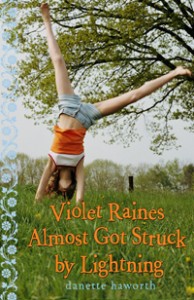
Review
Violet’s hometown of Mitchell Hammock, Florida, is a dangerous place full of alligators, coral snakes and lightening striking all over. But it’s also a place of adventure where net bridges swing over creeks, hollowed-out trees turn into secret hiding places, and kids feel safe exploring it all with friends.
Beneath the adventure lies a predictable routine for Violet. She goes to church on Sundays, helps her best-friend and next-door neighbor Lottie with a weekly fish fry afterwards, and explores the woods around her home with her other friend Eddie. She’s an only child who is on her own often while her mama works at the local bakery, but she’s never lonely.
When Melissa moves to town from the Northern city of Detroit, Violet’s predictable summer before junior high is suddenly anything but. Melissa likes make up and soap operas, and she writes to movie stars. Lottie takes to her immediately, and Violet fears Melissa is trying to steal her best friend. She’s also worried about changes in her body, talk of bras and her own feelings for Eddie.
While Violet works through her conflicted feelings, she finds a way to open up her world without giving up who she truly is. Mother-daughter book clubs will find Violet’s fresh voice a delightful opening to talk about issues of friendship and growing up. I highly recommend Violet Raines Almost Got Struck by Lightning by Danette Haworth for groups with girls aged nine to twelve.
Save





